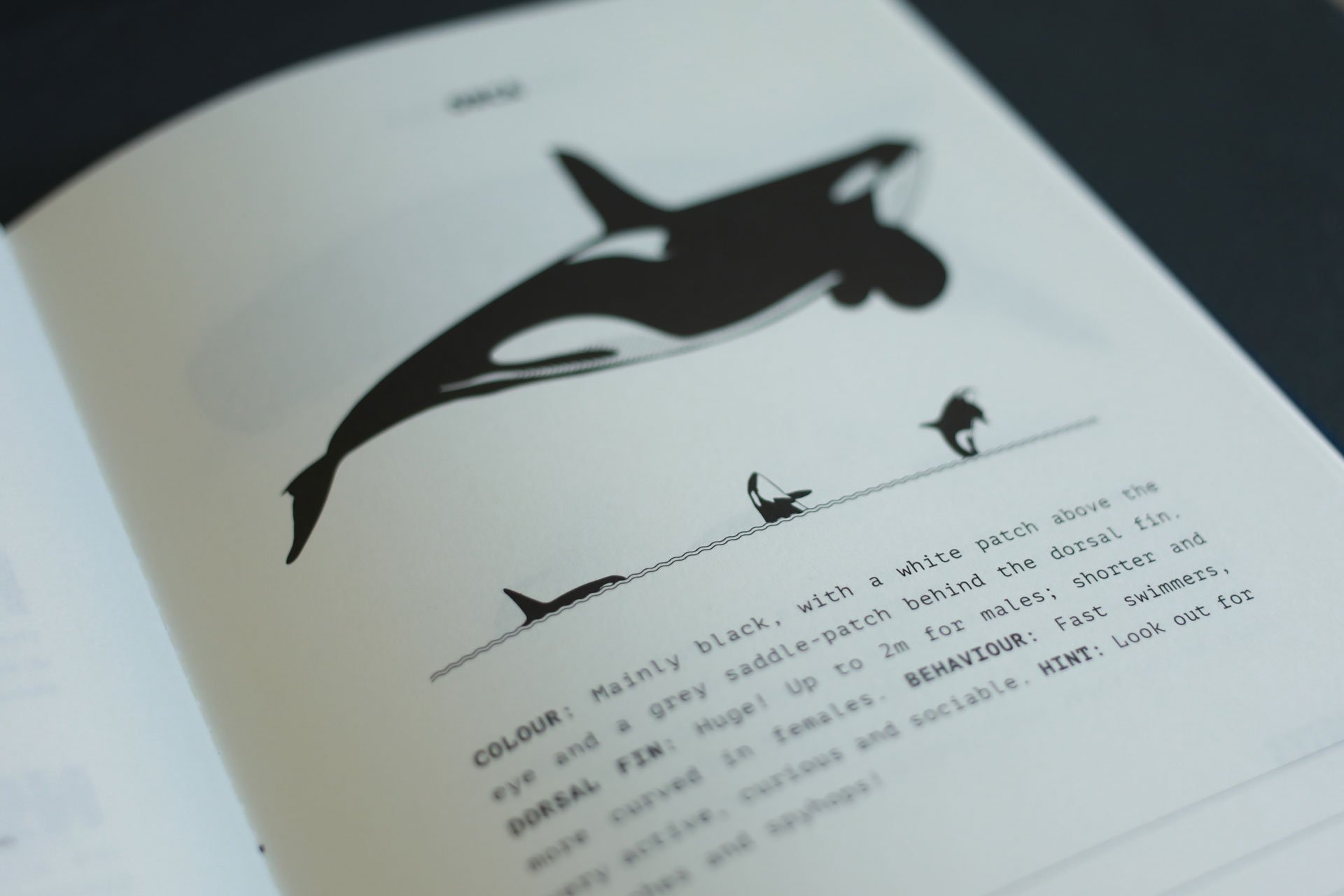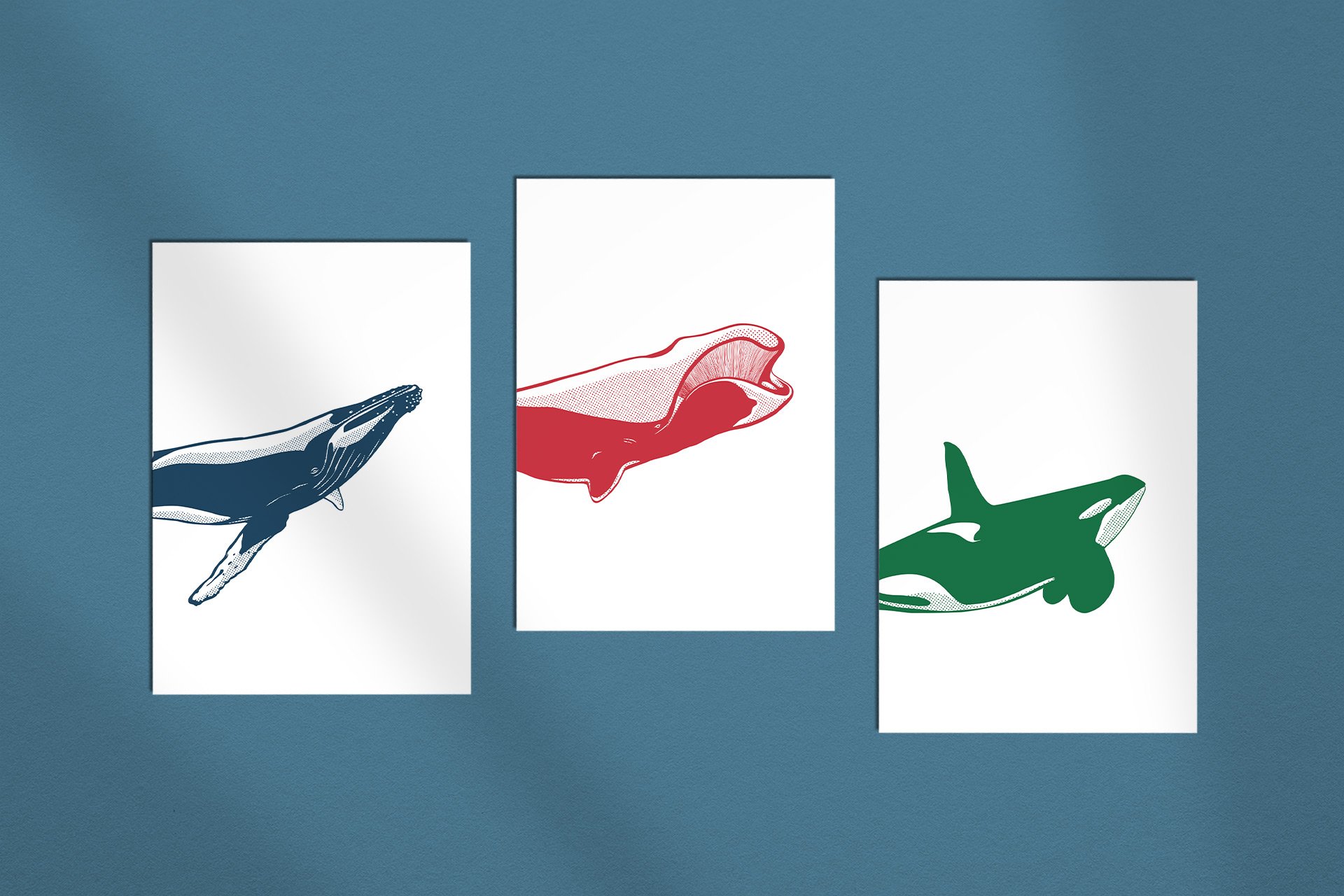10 Tips
What to keep in Mind when Whale Watching: our ten best tips for your next trip.
Pilot whales in the midnight sun, northern Norway in summer. Photo: Oliver Dirr / Whaletrips
Whale Watching: 10 Tips
A whale watching tour should be a great experience. An impressive moment that you will remember for the rest of your life. Here are ten things to keep in mind.
Over 15 million people go whale watching every year – and this number is growing year on year. Seeing the giants of the sea seems to be a dream come true for many. If whale watching is done right, it can be an unforgettable moment – and an eye-opener too! Because sometimes people need to see something with their own eyes to really realise it. To develop an understanding. Compassion. Care. Maybe even love. People protect what they love. So whale watching – despite all the negative impacts – can also have a very positive effect on marine conservation.
There are a lot of places where you can go whale watching. And a lot of operators - many good and some not so good. You could and should learn something on a whale tour. A little bit to think about. Be inspired. And ideally also pick up a few ideas on what you can do in your everyday life to better protect whales and their habitat. We have compiled a few points that you should be aware of when whale watching.
#1: Above all, it's about learning something. Not about an adventure.
The focus of a whale-watching trip should not primarily be on a few great fluke photos for your Social Media. A tour like this costs a lot of money, so you should bring home a bit more than some nice photos. Ideally, you will have learnt something and gained a new perspective on things. That's what whale watching is all about: learning something. Not about having an adventure.
#2 If there is no land at hand: a boat trip is okay.
Obviously, the best way to watch whales is from land. There are a lot of great places in the world where you can do just that. You can often see the whales very close to shore, and that's just as exciting as watching them from a boat. Some of our best whale-watching experiences have been from land. Sometimes, however, there is no other way and you have to go by boat. That's okay!
#3 Look for a good operator. An enthusiastic one.
Good operators are first and foremost concerned about the whales. Ideally, they have built their business on their enthusiasm for whales, not on their enthusiasm for money. A strong first indicator is, for example, if there is a scientist or well-trained guide on board who is passionate and enthusiastic about explaining everything about whales and the protection of their habitat to passengers before, during and/or after the tour. As soon as a whale is sighted, great guides are often a little euphoric, and this euphoria is easily transferred to the passengers. After a tour, everyone on board should be a bit energised. Furthermore, some providers even support local research projects. Those are the good ones. Take them.
Striped dolphins off the Azores. Photo: Oliver Dirr / Whaletrips
#4 Stay relaxed. Then the whales probably will, too.
The trip with a small zodiac is usually advertised as even more intense and exciting – but small boats always mean more boats, and that in turn means more stress for the whales. You also have a very good view from larger boats. It is also easier to take photos – small boats often wobble a lot and the photos are usually very blurred. Sailing boats are highly recommended. They are quiet and relaxed, which also benefits the whales. A relaxed whale will often come closer of its own accord, whereas a stressed whale will always try to get away as quickly as possible. Rule of thumb: The number of boats should always be well below the number of whales. And if there are a lot of boats, you should simply try somewhere else.
#5 It's not about getting close. It's about respect.
The most important person on board: the captain. What he or she absolutely needs to know: How to approach whales – slowly, from the side, never directly from the front or behind. A boat should never come too close, never cut off the whales' path, and never separate a group. And the captain should never be pressurised to get "a little closer" or to stay "a little longer". Whale watching is not about getting as close as possible. It's about respect. For the whales and their habitat. In some countries you are asked to act "whale wise". That's exactly what it's about.
#6 Keep your distance. Don't stay too long. There is so much to see.
A boat should keep at least 100 metres away from a whale, or even 200 metres if there are several boats. And yes, it's not that easy on the vast ocean without any scale. If a whale comes closer of its own accord: marvellous! In this case, the captain will stop the boat and simply wait to see what happens. Nevertheless, even in this case you should not stay with a single whale for more than 20 to 30 minutes. Then it's better to move on. There is so much to see. And the exciting thing about whale watching is not least the search until you spot another blow or fluke somewhere on the horizon.
A blue whale raises its mighty fluke. Photo: Oliver Dirr / Whaletrips
#7 Do not go into the water. Stay on board. It's exciting enough there.
Sorry, but: There is no reason to swim with whales. It's quite stressful for the whales and also quite dangerous for humans. A whale is huge, and even an accidental blow with the fluke is likely to be nasty. Swimming with whales should be left to individual researchers and professional photographers. Actually, whale watching from a boat is exciting enough. Seriously. Over and over again.
#8 Never feed whales. Whales are wild animals. Leave it at that.
Some not-so-smart operators and passengers sometimes think it's a smart idea to feed whales and lure them closer to the boat. Please don't do this. Whales are wild animals in the wilderness. That's exactly what makes it so exciting to encounter them. Basically, you shouldn't throw anything into the sea. No food, no rubbish, nothing. If you see other passengers doing this: talk to them, explain.
#9 Tasting whale meat? It's just a thing for the tourists.
In some countries, whale meat is still on offer. Many tourists think that the locals eat whale meat all the time and therefore want to try for themselves. But that's nonsense. Whale meat is mainly a tourist thing, folklore and marketing, most locals do not eat whale meat at all. Incidentally, whale meat is one of the most contaminated types of meat there is. In Iceland there is a simple slogan: "Meet us, don't eat us."
A sperm whale resting prior to the next dive. Photo: Oliver Dirr / Whaletrips
#10 Share your experiences. And help other whale watchers.
The guidelines for whale watching are different in every country. Some countries are quite strict, but in many the rules are hardly enforced and in some countries there are no regulations at all. If you notice something that doesn't seem particularly "whale wise", talk to the passengers, the guide, the crew or the captain. If you have nevertheless been on a bad tour in this respect, report it to the local environmental authorities and post your experiences on Trip Advisor or Social Media. Your shared experiences will help others to find the good operators.
Lastly, most unpleasant things happen because the people involved simply didn't know any better. Very few operators or tourists really have bad intentions. We want you to have the best possible experience on your trip. And we want you to disturb the whales and their habitat as little as possible. Looking at the many trips we have done over the years, the above points are the most important things to keep in mind. For more information on this topic, please also check out our friends at Whale & Dolphin Conservation!
Whaletrips Shop
The ideal Companion for your whale trip
All the whale facts you need while on the road – with plenty of space for own thoughts and observations!
Whaletrips Shop
Our Whales as Cards and Stickers
Colourful, finely illustrated, ready to stick on: Our whales are now available as stickers and greeting cards!
Whaletrips Shop
Beautiful whale Notebooks
Whether for travelling or at home: our high-quality whale notebooks come in five beautiful colours!
Whaletrips Shop
Our favourite photos for your home
Brightens any wall: a selection of our favourite motifs is available as elegant fine art print for your home.












